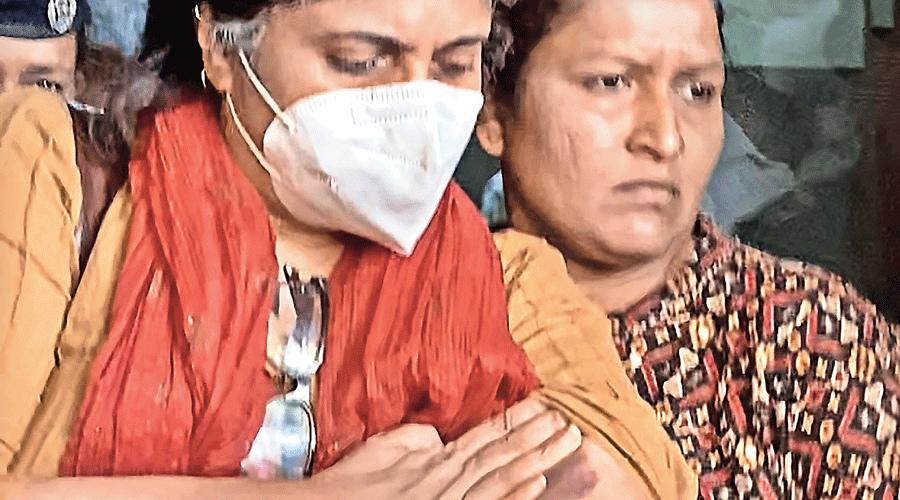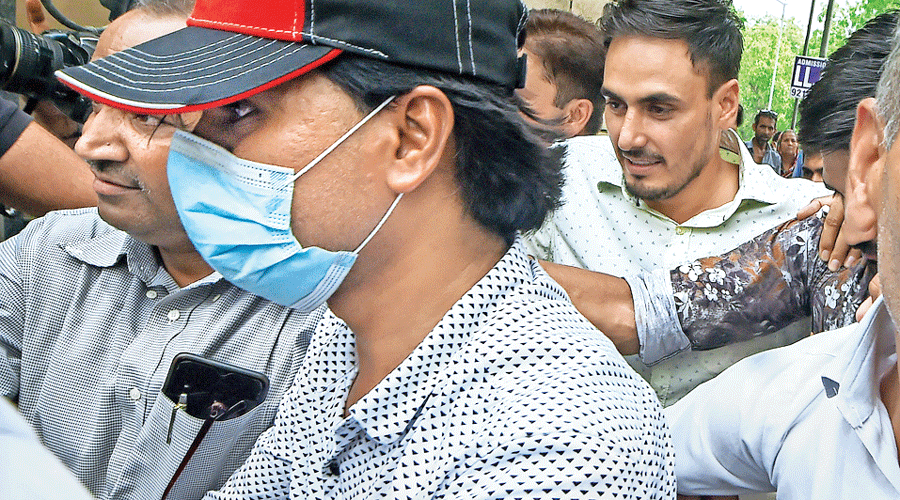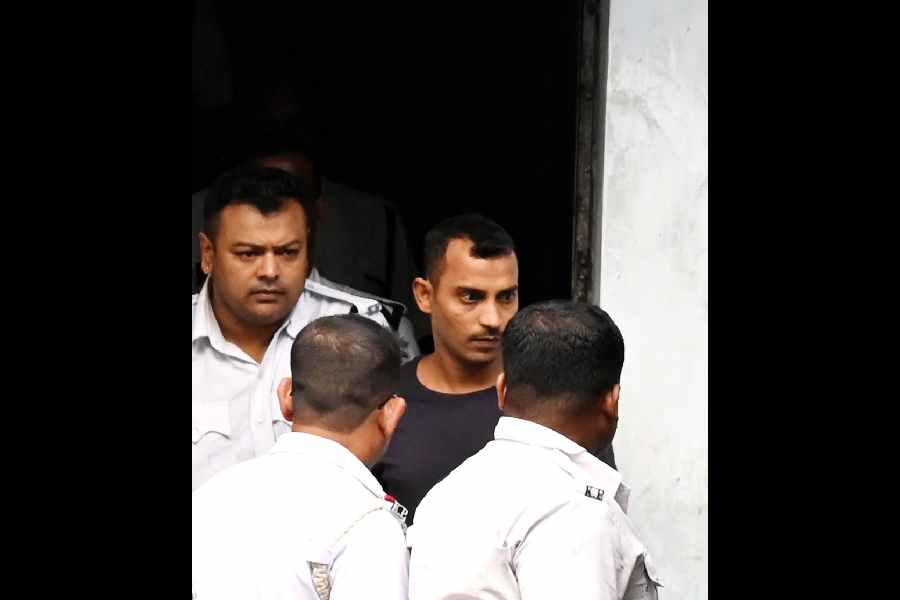Over 300 lawyers, academics and rights activists have jointly written to Chief Justice of India N.V. Ramana seeking a clarification from the Supreme Court that the recent Gulberg Society massacre case judgment “was not intended to have any adverse consequences whatsoever on Teesta Setalvad, R.B. Sreekumar and others”.
Justice Ramana is abroad, visiting Europe and the US, and is expected back here by the end of this week or sometime next week.
The apex court had on June 24 endorsed a special investigation team’s (SIT) clean chit to then Gujarat chief minister Narendra Modi over the 2002 riots, dismissing a plea from Zakia Jafri who had alleged a larger conspiracy in high places. The bench had ruled that “disgruntled officials of the state of Gujarat along with others” had given testimonies “replete with falsehood” and said that all those involved in “such abuse of process need to be in the dock and proceeded with in accordance with law”.
A day later, the Gujarat police cited the judgment to arrest social activist Setalvad and former IPS officer R.B. Sreekumar, both of whom had questioned the Gujarat government’s role during the riots.
In the letter, dated June 29 but made public on July 1, the 304 signatories have said that Setalvad and Sreekumar are being hounded “because they chose to pursue justice for the over 2,000 people who were killed in Gujarat in February 2002”.
“We refuse to believe that our Supreme Court really intended to sanction in advance the course of retribution that the current government has chosen to pursue. Even during the Emergency, the Supreme Court did not imprison those who sought to use legal processes by appealing to it,” the letter says.
“The court may have failed to stand up for the citizen in ADM Jabalpur, but it did not kick down those who chose to fight for citizens’ causes in court.”
The controversial ADM Jabalpur judgment, passed during the 1975-77 Emergency, said a person’s right to not be unlawfully detained can be suspended.
“We must express our agony that the state police justify the arrests on the basis of the Supreme Court’s judgment,” the letter says. “We call upon the court to suo motu clarify that the above-quoted paragraph, in its judgment, was not intended to have any adverse consequences whatsoever. The absence of such clarification may lead to further consequences when bail is sought by those whom we believe to have been unjustly imprisoned.”
The signatories include senior advocates Anjana Prakash, K.S. Chauhan, Anand Grover, Indira Jaising and Sanjay Hegde; Justice Amar Saran (retired); journalist Paranjoy Guha Thakurta; historian Ramachandra Guha; author Tushar Gandhi; rights activist Kavita Krishnan and RJD Rajya Sabha member Manoj Kumar Jha.
The letter highlights that after the June 24 judgment, Union home minister Amit Shah chose to comment in a media interview on the court’s observations, and the Gujarat police promptly arrested Setalvad and Sreekumar.
“This sequence of events has sent a chilling message for the practice of law in the courts and for the rule of law in the country. It appears that a petitioner or a witness, who diligently pursues a cause in the courts, runs a risk of being ‘put in the dock’ if the court deems the cause as devoid of merits,” the letter says.
Citing the paragraph from the judgment that spoke of the need to put “in the dock” those “involved in such abuse of process”, the letter says this was not intended to have any legal consequences as it is a settled law that any adverse action against a person can start only after the person has been given due notice.
“The court has neither issued notice of perjury nor contempt to anyone in these proceedings. In fact, the court has issued no specific notice whatsoever, warning of any adverse consequences,” the letter says.
The paragraph from the judgment that the letter cites also mentions that the “present proceedings have been pursued for last 16 years” and speaks of a “devious stratagem adopted to keep the pot boiling, obviously, for ulterior design”.
But the letter underlines that the Supreme Court itself had ordered an SIT investigation and appointed an amicus curiae (friend of the court) to submit a report in the matter.
Then, in 2013, the apex court sent the SIT and amicus curiae’s reports to the magistrate dealing with the riot case Zakia had referred to. The matter then travelled up the appeals process till the June 24 judgment.
Therefore, the letter says, “The petitioners or people assisting them can in no way be blamed for the passage of time, in the law’s delay.”












